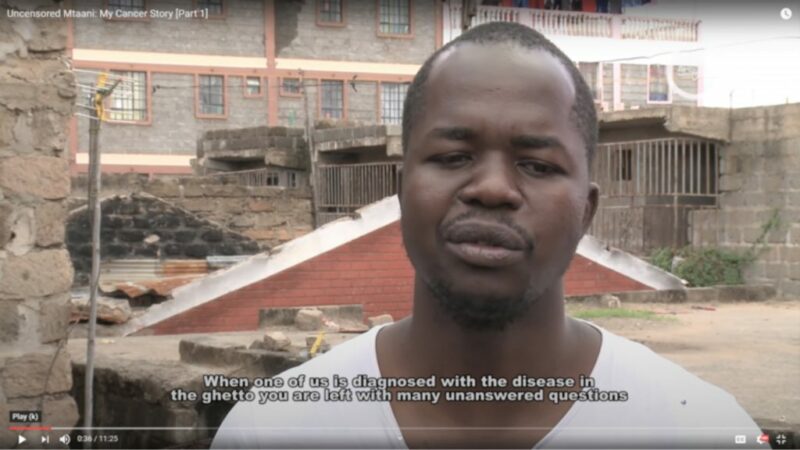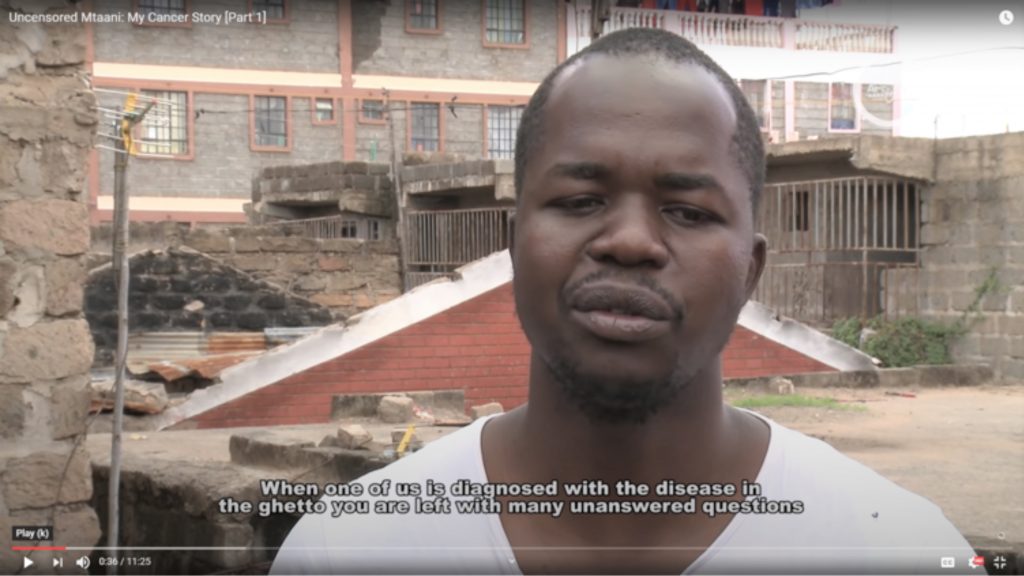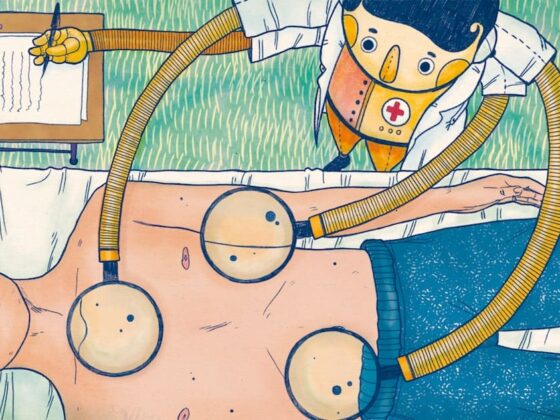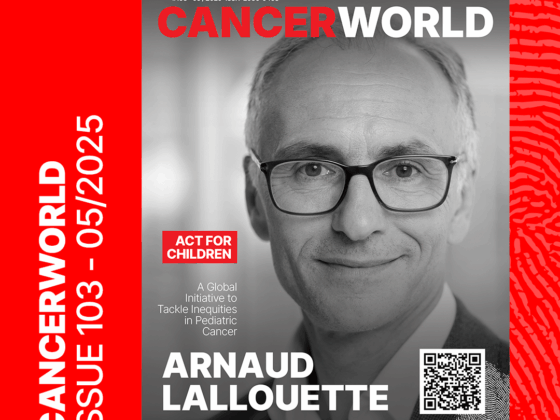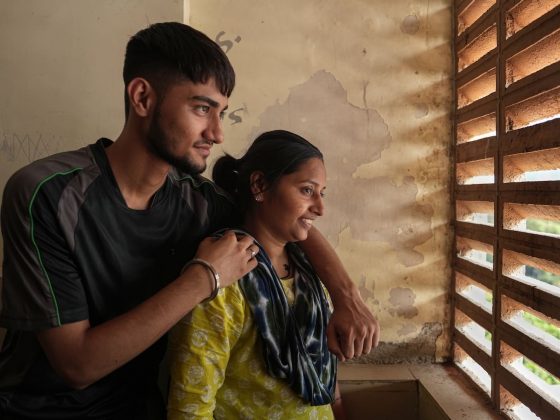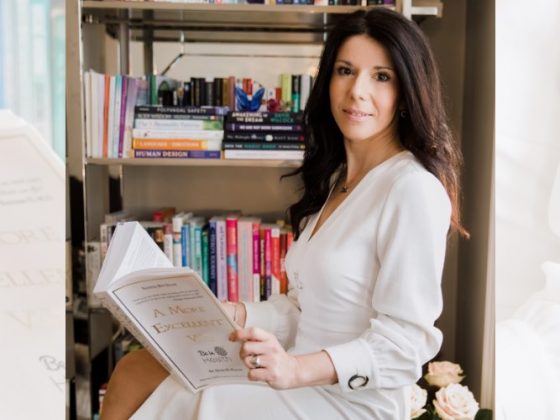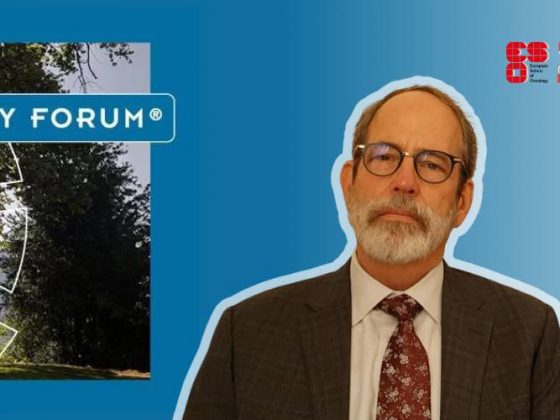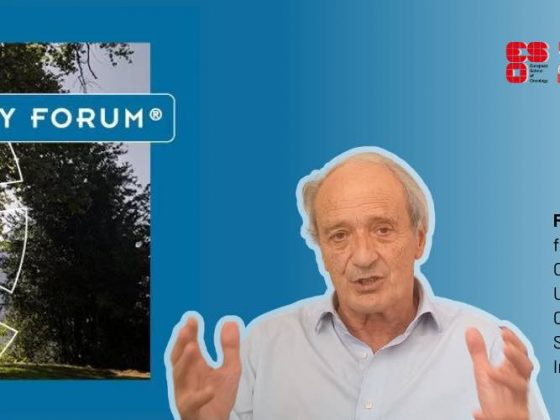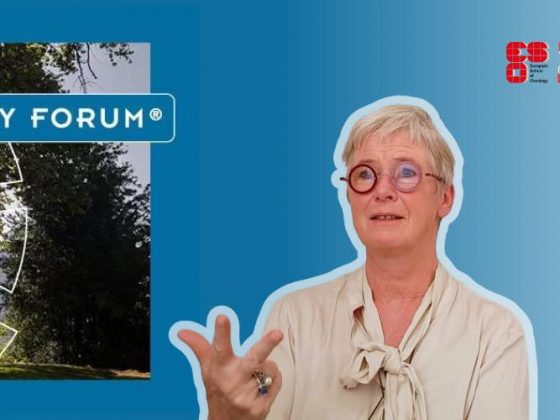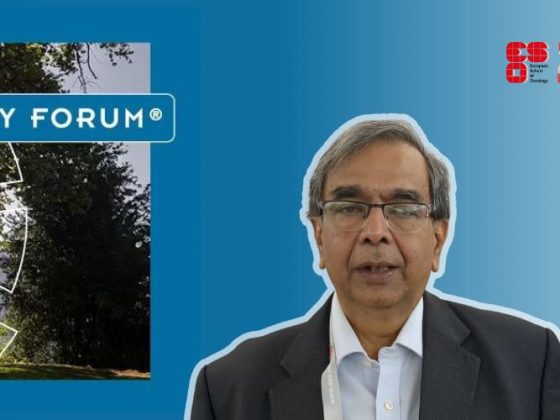We often talk about the need to break down ‘silos’ in cancer care – to view treatment, care and research holistically, collaborating around patient needs. Who would have thought that journalists would show clinicians the way?
Of all the changes we’ve seen in cancer reporting since the European School of Oncology’s Cancer Journalism Award was first launched in 2006, the most encouraging has been that more and more journalists are defying the artificial boundaries created around cancer. The best articles aren’t just about the science, or the professionals doing the treatment, or the patient point of view: they’re about the whole picture. They’re showcasing what journalists, at their best, do best: asking “What does it all mean?” “How do all the pieces fit together?”

There’s no finer example of this than the overall winner of this year’s award, Anne Preger from Germany, whose podcast ‘Chance in Phase 2’ explored a range of research, treatment and emotional issues through the story of a young girl with TRK fusion cancer tumours in her head. It reported on cutting edge cancer science while always reflecting on the family experience, as the girl took part in a phase 2 research study at a children’s cancer centre.
Such podcasts, as well as the ‘long-form’ pieces allowed by web-based articles and video, have allowed a more expansive type of storytelling in health journalism in recent years. Long-form can go wrong: audiences can easily lose interest. But the judges were gripped by this piece. They loved the way that Preger and her podcast production team themselves became characters in the drama, as they quizzed each other and scoured every corner of the ward, laboratory, living room and operating theatre for answers to their questions.
“The podcast was special for me right from the beginning,” said Preger. “A family placed a lot of trust in me and allowed me to tell the story of their journey with childhood cancer. During my reporting I felt humbled by the perseverance of Antonia, her parents and the medical team at Hopp Children’s Cancer Centre Heidelberg.”
You can read the English-language transcript here. You can listen to the original German-language episode here.
Another category winner – and another fine example of long-form journalism – was Elijah Kanyi for his two-part report for the Africa Uncensored YouTube channel, on the experiences of low-income families with cancer in Kenya.

The judges admired the way it simply let people tell their stories, but kept the viewer engrossed through its skilful production. The result was both eye-opening and extremely moving. Kanyi said that receiving the award was “an encouragement to continue being the voice of the voiceless”.
You can view the films here.
Patrice Goldberg, Editor in Chief of Matière Grise, the science programme of the RTBF TV channel in Belgium, received well-deserved recognition for his report on women’s use of decorative breast tattoos after mastectomy. The judges were impressed with the way that journalists had established trust with their subjects and revealed inspiring stories.
And the final winners were a group of journalists – Myriam Vidal Valero, Rodrigo Pérez and Nelly Toche – who explored the stigma faced by lung cancer patients in Mexico for the New York Times. The reporters shed light on the experiences of a large and marginalised group of patients and asked important questions about existing public health policies.
You can read the English-language transcript here. You can view their article in the original Spanish language here.
The European School of Oncology’s Cancer Journalism Award encourages, celebrates and rewards journalists who deliver insights into the personal and social impact of the disease, and efforts to change policy, practice or advocacy.
Journalists can submit one or more items of their work – whether in print, online, on radio, video or television – into the following categories:
- Research, science and treatment
- Patient and carer experience
- Policy, services and affordability
- Prevention
Information on the deadlines for the next edition of the Award will shortly be published here.

